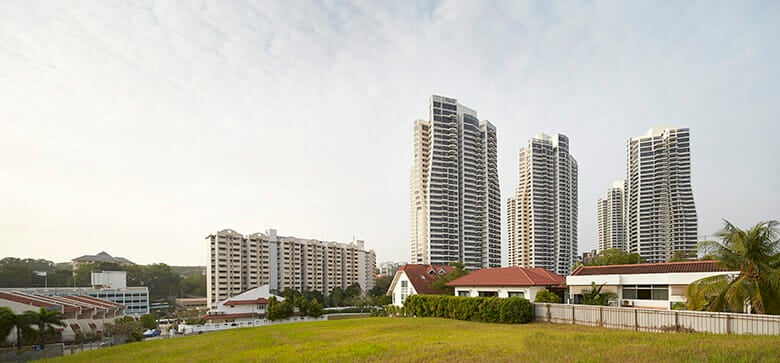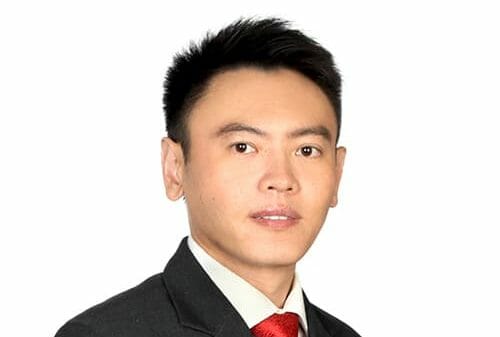
Singapore homebuyers will need more income to repay their mortgage loans (Getty Images)
Less than a week after Hong Kong relaxed mortgage lending rules, Singapore has moved in the opposite direction by imposing further cooling measures to tame buyer demand in the city-state’s red-hot housing market.
The Monetary Authority of Singapore will raise the medium-term interest rate floor by half a percentage point for residential property loans granted by private financial institutions, from 3.5 percent to 4 percent, the government said Thursday in a release. The actual interest rates charged will continue to be determined by the institutions themselves.
The calibration of the medium-term stress test was widely expected, said Lam Chern Woon, head of research and consulting at Edmund Tie, as mortgage rates have already exceeded 3 percent and are likely to surpass 3.5 percent going into 2023, thus “vanquishing any meaningful buffer” to safeguard borrowers’ ability to repay loans in a rising rate environment.
“For the private property market where S$2 million ($1.4 million) home price quantums are increasingly common, even in the suburban segment, affordability will undoubtedly be impacted,” Lam said. “A S$1.5 million loan with a 30-year tenure would now require a higher monthly income of about S$13,000, compared to the earlier S$12,200, assuming no other debt obligations.”
Greater HDB Impact
For non-residential property loans, the medium-term interest rate floor will rise from 4.5 percent to 5 percent. All of the new conditions apply to loans for the purchase of properties where the option to purchase is granted on or after 30 September 2022 or where the sale and purchase agreement is on or after that date.

Lam Chern Woon, research and consulting head for Edmund Tie
While the previous cooling measures implemented in December 2021 were targeted more towards the private residential market, the current round will have a greater impact on public housing, said Christine Sun, senior vice president of research and analytics at OrangeTee.
The revised rules to be applied to loans granted by the Housing and Development Board include an interest rate floor of 3 percent for computing the eligible loan amount and a lowering of the maximum loan-to-value ratio from 85 percent to 80 percent.
In addition, private residential property owners who intend to buy a non-subsidised HDB resale flat will be subject to a waiting period of 15 months after the disposal of their private properties, up from the current six months.
“The 15-month waiting period is probably done to slow down housing demand from private homeowners,” Sun said.
Tale of Two Cities
The half-point hike in the medium-term floor is modest when considering the pace at which interest rates have climbed, said PropNex Realty CEO Ismail Gafoor.
“Still, we anticipate that this may have some knee-jerk impact on private home sales in the coming months, as would-be buyers review their sums and consider their options,” Gafoor said, noting that the changes could weigh more heavily on the sale of new executive condominiums, whose buyers are subject to stricter debt servicing ratios.
While Singapore’s new rules are aimed at tempering exuberance among homebuyers, Hong Kong’s relaxed measures introduced last week are meant to give a shot in the arm to that city’s moribund housing market.
The Hong Kong Monetary Authority lowered the interest rate stress-testing requirement for mortgage lending from 300 basis points to 200 basis points, a level that the HKMA considers sufficiently prudent from the perspective of effective risk management.
Cushman & Wakefield’s Hong Kong research team reported that residential sale and purchase agreements in the third quarter of 2022 fell by 39 percent year-on-year and by 22 percent from the preceding three months to reach a total of 11,600 deals in the period.
Leave a Reply